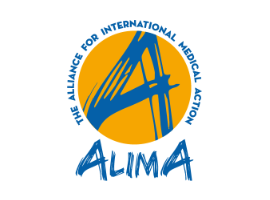
The Alliance for International Medical Action (ALIMA) is a humanitarian medical organization that works hand-in-hand with a network of local medical organizations to provide quality care to the most vulnerable people during emergencies and recurrent crisses. Created in 2009, ALIMA and its partners have treated more than 4 million patients in 14 countries, and conducted more than a dozen cutting-edge research projects on malnutrition, malaria and Ebola, to improve humanitarian medicine by developing innovative solutions to the most urgent health problems that affect people in the countries where we work. By combining our resources and expertise, we achieve better access to patients and a more sustainable, long-term impact.
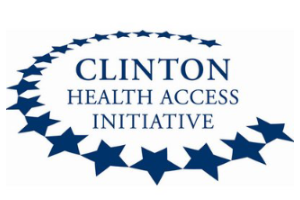
The Clinton Health Access Initiative, Inc. (CHAI) was founded in 2002 with a transformational goal: to help save the lives of millions of people living with HIV/AIDS in the developing world by dramatically scaling up antiretroviral treatment. CHAI has pursued several similarly ambitious goals, from expanding paediatric AIDS treatment, to accelerating the rollout of new vaccines. Today, CHAI operates in 33 countries, and more than 70 countries are able to access CHAI-negotiated price reductions, vaccines, medical devices, and diagnostics. Over ten years, Unitaid invested more than US $400 million through CHAI to increase access to affordable HIV medicines suitable for children.
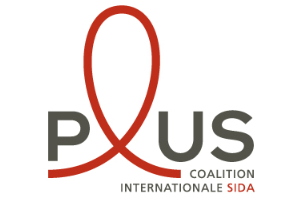
Founded in 2008, Coalition PLUS is an international coalition of community-based organizations against AIDS and viral hepatitis. Coalition PLUS now maintains a worldwide presence, with 100 partners in 40 countries. Through the 14 member organizations of our Board, the decision-making process involves associations from both the Global North and Global South. With our community-based approach, we advocate for people who live with HIV/viral hepatitis and key populations to be systematically involved in the design, implementation and evaluation of the healthcare programs that directly affect them.

DRW is committed to tackling some of the world’s most serious infectious diseases by making its point-of-care diagnostic tests widely available. The group’s quick, reliable tests for HIV and Chlamydia sprang from a groundbreaking technology called signal amplification system (SAS) that was devised in the Diagnostic Development Unit of Cambridge University. DRW is also reaching the most challenging environments with its Early Infant Diagnosis (EID) and Viral Load (VL) measurement for people living with HIV. Another of DRW’s innovations is its FirstBurst test for Chlamydia, one of the world’s most common sexually transmitted infections. FirstBurst collects six times more Chlamydia bacteria than a standard urine sample and provides accurate results in less than an hour.
From 2013 to 2017, Unitaid partnered with DRW to introduce early diagnostic tests for HIV in Cameroon, Kenya, Malawi, Nigeria, Uganda, and Zimbabwe. At early implementation sites, 85 per cent of those tested received results the same day. Results used to take four to six weeks, or even longer.

Since its foundation in 2003, DNDi has been developing drugs to treat the most neglected life-threatening diseases, such as sleeping sickness (Human African Trypanosomiasis), leishmaniasis, Chagas disease, paediatric HIV, filarial diseases and mycetoma.
DNDi brought out the first improved combination treatment for sleeping sickness in 25 years, as well as the world’s first child-friendly medication for Chagas disease. An antimalarial fixed-dose combination treatment supported by DNDi has reached more than 500 million patients. DNDi plans to deliver 16 to 18 new treatments for neglected diseases by 2023.
Since 2013, Unitaid and DNDi have been working together on a project to develop HIV treatments suited to children. The new medicines taste good and contain the correct doses for children. The project aims to improve coverage and adherence, and eventually to reduce child mortality from HIV /AIDS.

In 1988, AIDS activist Elizabeth Glaser inspired a movement that has since resulted in the near-elimination of pediatric HIV infection in many high-income countries. Yet Elizabeth’s vision of a generation free of HIV has yet to be realized. EGPAF seeks to end pediatric HIV/AIDS altogether through research, advocacy, and prevention and treatment programmes. The organization supports 5000 healthcare sites around the world; these provide 26 million women with services to prevent the transmission of HIV to their babies, treatment for 900,000 HIV-positive people, including 70,000 children, and HIV tests for 24 million people.
Unitaid and EGPAF are collaborating on a project, running 2015-2019, that expands access to affordable and effective testing of infants exposed to HIV. Treating these babies as soon after birth as possible greatly improves their chances of long-term survival. This project aims to reduce the time from sample to results to no more than two days.
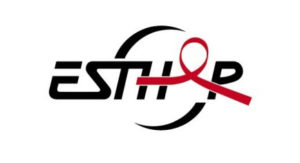
Together for a therapeutic network hospital solidarity (ESTHER) was an international network for the improvement of health services in Africa and Asia. It worked in 18 countries supported by a European network of offices and laboratories. On 31 December 2014 ESTHER was merged into Expertise France, a French agency delivering technical advice.
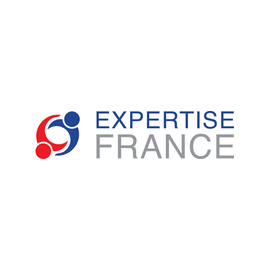
Expertise France is a public agency and a key actor in international technical cooperation. It designs and implements projects that sustainably strengthen public policies in developing and emerging countries. Governance, security, climate, health, education… It operates in key areas of sustainable development and contributes alongside its partners to the implementation of the 2030 Agenda.
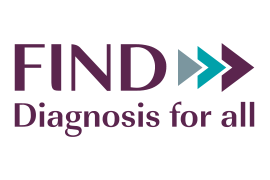
FIND is a global non-profit organization that drives innovation in the development and delivery of diagnostics to combat major diseases affecting the world’s poorest populations. Work bridges R&D to access, overcoming scientific barriers to technology development; generating evidence for regulators and policy-makers; addressing market failures; and enabling accelerated uptake and access to diagnostics in low- and middle-income countries (LMICs). Since 2003, FIND has been instrumental in the delivery of 24 new diagnostic tools. Over 50 million FIND-supported products have been provided to 150 LMICs since the start of 2015. A WHO Collaborating Centre, FIND works with more than 200 academic, industry, governmental, and civil society partners worldwide, on over 70 active projects that cross six priority disease areas.
Unitaid and FIND are working together to fight hepatitis C, malaria and tuberculosis (TB). The hepatitis C project (2016–2020), is improving screening and diagnostic tools in four countries, particularly for HIV-positive patients. The TB project is supporting the global adoption of commercial, targeted next-generation sequencing (NGS) for affordable, scalable and rapid TB drug-susceptibility testing. The malaria project, (2013–2017), established sustainable quality-control standards for rapid diagnostic tests (RDTs) in malaria-endemic countries.
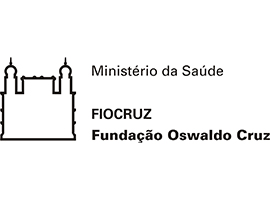
The Oswaldo Cruz Foundation (Fiocruz) is a scientific institution for research and development in biological sciences, linked to the Brazilian Ministry of Health. Fiocruz is considered one of the world’s main public health research institutions and develops diversified research, teaching methods and actions, with the objective of promoting health, sustainable social development and citizenship, and generating and disseminating scientific and technological knowledge.
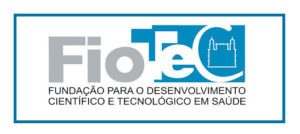
The Foundation for Scientific and Technological Development in Health (Fiotec) provides logistical, administrative and financial support to the Oswaldo Cruz Foundation (Fiocruz), one of the world’s main public health research institutions. Fiocruz was founded in 1900 by Dr. Oswaldo Cruz, a noted physician and epidemiologist, and today is affiliated with the Brazilian Ministry of Health. Based in Rio de Janeiro, Fiocruz is active in a wide spectrum of health-related areas, including drug and vaccine development.

Around the world millions of people are denied HIV prevention, testing, treatment and care simply because of who they are and where they live. As a result, 1.5 million people were infected with HIV in 2021 and 650,000 died of AIDS-related illness.
Frontline AIDS works to break down the social, political and legal barriers that marginalised people face and stand in the way of the end of AIDS.
We work with partners on the frontline, innovating together to create a future free from AIDS.
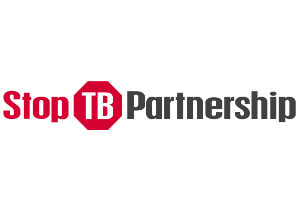
GDF is the world’s largest supplier of quality-assured TB treatments—first-line drugs, second-line drugs and paediatric forms—in the public sector. The organization was created in 2001 as a major initiative of the Geneva-based Stop TB Partnership, to help countries struggling to find and fund stable, high-quality TB drug supplies.
GDF aims to save 25 million lives and prevent 50 million new TB cases by 2020, prevent new strains of drug-resistant TB, make purchasing TB drugs more cost-effective, and improve the quality of TB drugs globally.
Unitaid’s projects in cooperation with Global Drug Facility have focused on developing new tuberculosis drugs for children under five years old (2006-2011), and on purchasing drugs, for both first-line and multidrug-resistant forms of TB, to minimize the risk of drug stockpiles running out.
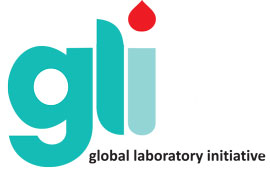
The GLI is a network of international partners dedicated to accelerating and expanding access to quality-assured laboratory services in response to the diagnostic challenges of tuberculosis, notably HIV-associated and drug-resistant TB. It was created in 2008 as an initiative of the Stop TB Partnership.
Unitaid and GLI’s joint project, EXPAND-TB, introduced state-of-the-art, quality-assured diagnostic technology services to countries affected by TB. The project ran from 2009 to 2016 and established 103 laboratories to diagnose drug-resistant TB across 27 countries.

The World Health Organization’s (WHO) Global TB Programme works to advance universal access to tuberculosis prevention, care and control, guide the global response to threats, and promote innovation. WHO’s End TB strategy is aiming to reduce TB deaths by 95% and cut new cases by 90% between 2015 and 2035. The strategy seeks to ensure that no family is burdened with catastrophic expenses due to TB. In 2017, WHO is focusing on addressing the stigma, discrimination and marginalization that form barriers to care.
From 2013 to 2016, Unitaid worked with the Global TB Programme on a project to scale up access to a faster, cheaper test for multidrug-resistant TB. It provided Xpert MTB/RIF (rifampicin) test cartridges for rapid detection of resistance. The test provides dependable results in less than two hours, replacing conventional tests that can take up to two months.

IVCC is a partnership working to develop products to eliminate malaria-carrying mosquitoes that kill an estimated 700,000 people a year, a large proportion of them African children. Its small team of experts, based at the Liverpool School of Tropical Medicine, work with colleagues from all over the world, with an emphasis on attacking mosquitoes that have gained resistance to the older sprays used in homes and on bed nets. IVCC also works with field centres in sub-Saharan Africa to conduct trials of new insecticides.
Unitaid and IVCC are collaborating on a four-year project (2016-2019) that aims to protect as many as 50 million people from malaria in 16 African countries. The project’s focus is to use new products to combat insecticide resistance in mosquitos.

The Bouisson Bertrand Institute is a scientific and humanitarian foundation that has been involved in public health missions for more than 100 years. It participates in research and prevention programmes for tropical diseases such as HIV/AIDS and tuberculosis.
The institute is working with Unitaid on a project in Cameroon to gather robust evidence on the clinical and economic benefits of a treatment regimen for HIV based on the antiretroviral drug dolutegravir.

The ITPC is a coalition of activists fighting to make sure that optimal HIV treatment is accessible to all people who need it. The organization’s goal is to enable longer, healthier and more fulfilling lives for people living with HIV, their families and their communities.
Based in Botswana with staff and partners worldwide, ITPC mobilizes community activists to advocate for the right to treatment, spreads knowledge about HIV treatment and supports community monitoring of health systems. One of ITPC’s strategies is to challenge drug patents so that generics can enter the marketplace and make HIV treatment more affordable for patients.
Unitaid’s 2014-2017 collaborative project with ITPC has been fighting to overcome patent barriers in Argentina, Brazil, Thailand and Ukraine so that low-cost generic drugs can enter the marketplace.
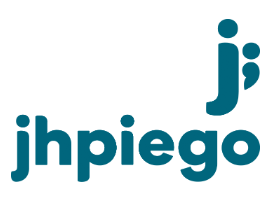
Jhpiego is an international, non-profit health organization affiliated with The Johns Hopkins University. For 40 years and in over 155 countries, Jhpiego has worked to prevent the needless deaths of women and their families.
Jhpiego works with health experts, governments and community leaders to provide high-quality health care for their people. Jhpiego develops strategies to help countries care for themselves by training competent health care workers, strengthening health systems and improving delivery of care.
Jhpiego designs innovative, effective and low-cost health care solutions to ensure a level of care for women and their families. These practical, evidence-based interventions are breaking down barriers to high-quality health care for the world’s most vulnerable populations.
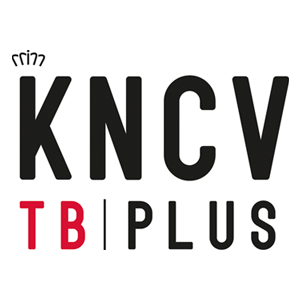
The Dutch KNCV Tuberculosis Foundation (KNCV) is the world’s leading TB expert organization and supports more than 25 countries in strengthening their national strategic TB programs and introducing innovations. Established in 1903, KNCV believes in a programmatic and patient-centered approach. We offer technical assistance worldwide and generate evidence for policy development.
KNCV introduces technical innovations at country level that save many lives. Examples are the introduction and scale-up of laboratory connectivity and new drugs and shorter treatments for patients with multi-drug resistant TB. KNCV also aims to lift societal barriers such as (self) stigma through stigma measurement and reduction. We focus on childhood TB, digital health solutions and finding and treating persons who are infected with TB. We believe that treating latent TB is key to ending TB.

Lawyers Collective is an NGO in India that promotes human rights issues, especially relating to women’s rights, HIV, tobacco, LGBT and parliamentary corruption in India. The organization’s Affordable Medicines and Treatment Campaign (AMTC) was launched in 2001 to create a legal and policy environment that ensures sustained accessibility and affordability of essential, life-saving medicines. Confronted with the reality of people dying due to lack of access to medicines to treat HIV, hepatitis C and tuberculosis, the Lawyers Collective devised and implemented strategies to eliminate intellectual property (IP) barriers and increase generic competition to make medicines affordable.
Unitaid and Lawyers Collective joined forces for a 2013-2016 project to prevent or remove low-quality patents, one of the main market-entry barriers for genetic medicines, by filing patent oppositions for HIV, TB and hepatitis C medicines in India.
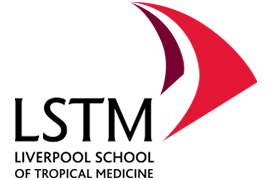
Liverpool School of Tropical Medicine (LSTM) is the world’s oldest centre of excellence in tropical medicine and international public health. It has been engaged in the fight against infectious, debilitating and disabling diseases since 1898 and continues that tradition today with a research portfolio over £320 million and a teaching programme attracting students from over 65 countries.
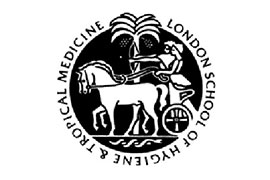
Founded in 1889, the school is a leading centre for research and postgraduate education in public and global health. It works to improve health and access to healthcare in the UK and worldwide, working in partnership to translate knowledge into policy and practice. The staff, students and alumni work in more than 150 countries in government, academia, international agencies and health services. Research income has grown to more than £110 million per year from national and international funding sources including the UK government and research councils, the European Union, the Wellcome Trust, Gates Foundation and other philanthropic sources.
Unitaid and the London School of Hygiene and Tropical Medicine collaborated on a project (2013-2016) to make quality-assured HIV monitoring technologies more available and affordable in low-income settings.

Established in 2003, Malaria Consortium is one of the world’s leading non-profit organizations specializing in the prevention, control and treatment of malaria and other communicable diseases among vulnerable populations. The consortium’s mission is to improve lives in Africa and Asia through sustainable, evidence-based programmes that combat targeted diseases and promote child and maternal health. The consortium has programmes and projects in 12 countries, with 95 percent of its staff working in malaria-endemic areas across Africa and Southeast Asia. The staff’s local insight, embedded technical expertise and practice skills allow the organization to respond quickly and effectively to critical challenges.
Unitaid and the Malaria Consortium have been collaborating on a 2014-2017 project to protect 25 million children from seasonal malaria in the Sahel region of Africa. In 2016, more than six million children received at least one cycle of seasonal malaria chemoprevention treatment, compared to 3.2 million in 2015. An estimated 8 million children are believed to have avoided malaria in 2016 because of the intervention.
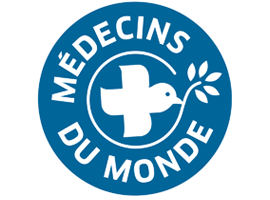
Founded in 1993, Doctors of the World Switzerland is an international solidarity medical association that is part of the Doctors of the World network. We provide sustainable access to healthcare for people in vulnerable situations, in Switzerland and around the world.

Médecins Sans Frontières (MSF) is an international, independent, medical humanitarian organization that delivers emergency aid to people affected by armed conflict, epidemics, natural disasters and exclusion from healthcare. MSF offers assistance to people based on need, irrespective of race, religion, gender or political affiliation. Founded in Paris in 1971, MSF now has programmes in some 69 countries. The organization rejects the idea that low-income people deserve third-rate medical care and strives to provide high-quality care to all patients. In 1999, MSF was awarded the Nobel Peace Prize and announced that the money would go toward fighting neglected diseases.
Unitaid and MSF have been combining forces to fight HIV and hepatitis C. A 2012-2016 project yielded a wealth of evidence on viral-load testing for HIV patients. A second project, running 2015 to 2017, is improving access to diagnosis and treatment for hepatitis C patients in low- and middle-income countries.

MMV is a leading partnership in the field of antimalarial drug research and development. Its mission is to reduce the burden of malaria in disease-endemic countries by discovering, developing and delivering new, effective and affordable antimalarial drugs. MMV and partners manage a portfolio of 65 projects. The portfolio includes nine new drugs in clinical development addressing unmet medical needs in malaria, including medicines for children, pregnant women and relapsing malaria, and drugs that could support the eradication agenda.
Unitaid and MMV worked together on a 2013-2016 project to make artesunate more widely available to treat children with severe malaria. The project followed a 2010 World Health Organization recommendation to replace injectable quinine with the more effective artesunate treatment. The project also facilitated the quality-assurance process for rectal arsenate, to be used in settings where the injectable form isn’t available.
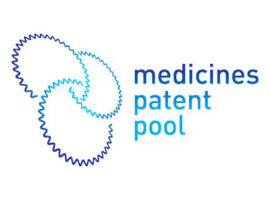
Founded and funded by Unitaid, the Medicines Patent Pool (MPP) is a public health organization working to increase access to HIV, viral hepatitis C and tuberculosis treatments in low- and middle-income countries. Through its innovative business model, the United Nations-backed MPP partners with governments, industry, civil society, international organizations, patient groups and others to forecast, prioritize and license needed medicines. The organization encourages generic manufacture and the development of new formulations through patent pooling. The MPP has signed agreements with nine patent holders for 12 HIV antiretrovirals, two hepatitis C direct-acting antivirals, one tuberculosis treatment and one HIV technology platform.
Unitaid and the MPP are involved in a 10-year project, ending in 2020, to negotiate licenses to enable the manufacture of low-cost, high-quality HIV, hepatitis C and tuberculosis medicines for developing countries. As of June 2016, savings generated by the MPP’s work amounted to US $239 million.
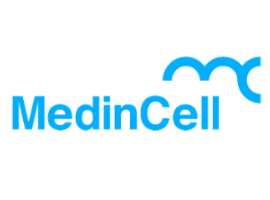
MedinCell is a clinical stage pharmaceutical company that develops a portfolio of long-acting injectable products in various therapeutic areas by combining its proprietary BEPO® technology with active ingredients already known and marketed. Through the controlled and extended release of the active pharmaceutical ingredient, MedinCell makes medical treatments more efficient, particularly thanks to improved compliance, i.e. compliance with medical prescriptions, and to a significant reduction in the quantity of medication required as part of a one-off or chronic treatment. The BEPO® technology makes it possible to control and guarantee the regular delivery of a drug at the optimal therapeutic dose for several days, weeks or months starting from the subcutaneous or local injection of a simple deposit of a few millimeters, fully bioresorbable. As an impact company, MedinCell collaborates with international non-profit organizations and foundations to address major Global Health challenges and improve access to best-in-class medicines. Based in Montpellier, MedinCell currently employs more than 130 people representing over 25 different nationalities.

MTV Staying Alive is an MTV international initiative to encourage HIV prevention, promote safer lifestyle choices and fight the stigma and discrimination which fuels the HIV epidemic. Staying Alive is now the world’s largest HIV mass media awareness and prevention campaign. It produces TV programming in the form of concerts, documentaries, public service announcements, TV film, film competitions and others. It also boasts a 13 language website with celebrity content talking about safe sex.

Partners in Health aims to bring the benefits of modern medical science to those most in need, working in close partnership with local government officials and the world’s leading medical and academic institutions to build capacity and strengthen health systems. Partners in Health is the largest nongovernment health care provider in Haiti, serving an area of 4.5 million people with a staff of more than 5700. PIH is also active in Rwanda, Lesotho, Malawi, Mexico, Russia, Peru, Liberia, Sierra Leone, and the Navajo Nation in the US.
Unitaid and PIH are teaming up on a project (2015-2019) to strengthen the market for new drugs to treat multidrug-resistant tuberculosis. An observational study and a clinical trial of two new drugs form part of the project, which is taking place in 15 countries with a high tuberculosis burden.
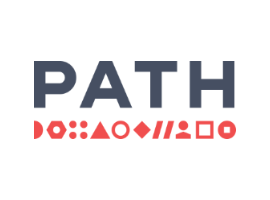
PATH is a global organization that works to accelerate health equity by bringing together public institutions, businesses, social enterprises, and investors to solve the world’s most pressing health challenges. With expertise in science, health, economics, technology, advocacy, and dozens of other specialties, PATH develops and scales solutions—including vaccines, drugs, devices, diagnostics, and innovative approaches to strengthening health systems worldwide.

PSI, a non-profit organization, provides life-saving information, products and services to tackle the world’s most pressing health problems, so people can lead healthier, happier, more productive lives. PSI seeks to make it easier for women and couples to plan the families they desire, have safe pregnancies and deliveries, and protect themselves and their families from malaria, pneumonia, diarrhea, malnutrition, HIV /AIDS, and chronic diseases. Among the organization’s many endeavors is the management of water, sanitation and hygiene programmes in more than 30 countries across Africa, Asia and the Caribbean.

Physician-researchers founded Solthis in 2003 at the Pitié-Salpêtrière Hospital in Paris to improve prevention and access to quality health care. Solthis, an international solidarity NGO, fights HIV/AIDS, ebola, tuberculosis, hepatitis, malaria and neglected tropical diseases, as well as supports maternal and child health in Cameroon, Ivory Coast, Benin, Burundi, Burkina Faso, Guinea, Madagascar, Mali, Niger, Sierra Leone, Chad and Tunisia. Their strategy is to intervene to strengthen health systems and services, making them sustainable.
Unitaid and Solthis are working together on a 2016-2019 project to expand access to viral-load testing in francophone Africa. A viral load test measures the levels of HIV in the blood to find out if a patient’s treatment is working.
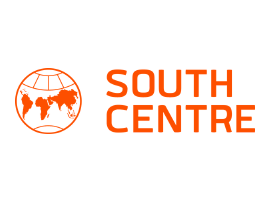
The South Centre is the intergovernmental organization of developing countries that helps developing countries to combine their efforts and expertise to promote their common interests in the international arena.
The South Centre works on a wide range of issues relevant to the countries of the South and the global community in general, such as development policies, sustainable development, climate change, global governance, economic and social development, South-South cooperation, global economic conditions, intellectual property, technology transfer, access to knowledge, health, trade agreements and food security.
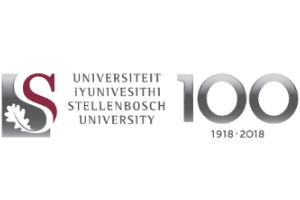
Stellenbosch University (SU) is a leading higher education institution in Africa and one of the four top research universities in South Africa. SU has three strategic priorities: teaching, community service and research. Research at SU is driven by the notions of simultaneous excellence and relevance, informed by a diversity of people and ideas. The Faculty of Medicine and Health Sciences (FHMS) at SU has a proud record of top-class research addressing some of the toughest health challenges of South Africa (SA), the African continent, and the world, and it is an internationally acknowledged world leader in the field of tuberculosis (TB).
In response to the escalating TB epidemic in SA and building on a strong institutional focus and record of accomplishment of TB research, the Desmond Tutu TB Centre (DTTC) was established in 2003 as a dedicated TB academic research centre in the Department of Paediatrics and Child Health, FMHS at SU. Paediatric TB Research has been a longstanding focus and DTTC is internationally renowned for excellence in this area, awarded the Kochon Prize 2012 in recognition of its contribution.
SU’s project with Unitaid aims to contribute to a reduction in morbidity and mortality among children with multidrug-resistant tuberculosis (MDR-TB) through improved access to better MDR-TB treatment.

TB Alliance is a not-for-profit organization dedicated to the discovery and development of better, faster-acting, and affordable tuberculosis drugs. Since its inception in 2000, the TB Alliance has led the global search new for TB regimens, forging cross-sector partnerships to work toward a world where no one dies of TB. TB Alliance’s ultimate vision is to have a transformative impact on the disease by introducing an ultra-short, simple, and affordable TB regimen that works in virtually all people with TB; this would have a major impact on the global epidemic, saving millions of lives and billions of dollars.
Unitaid and TB Alliance collaborated on a 2013-2017 project to develop better TB medicines for children. The work addressed the need for correctly dosed, properly formulated, high-quality TB medicines for children.
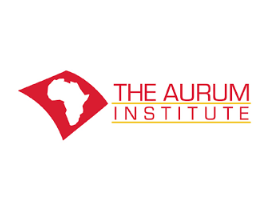
The South Africa-based Aurum Institute is a non-profit organization founded in 1998 to improve the health of disadvantaged people by providing care and conducting research. It has been a leading organization in the response, treatment and research efforts to eradicate tuberculosis and HIV. Aurum works on global health challenges alongside governments, the mining industry, nongovernmental organizations and communities.
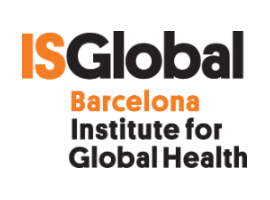
The Barcelona Institute for Global Health, ISGlobal, is the fruit of an innovative alliance between “la Caixa”, academic institutions, and government bodies designed to contribute to the international response to global health challenges.
ISGlobal is a hub of excellence in research that has grown out of work started by the Hospital Clínic and the Parc de Salut MAR, and, in the academic sphere, by the University of Barcelona and Pompeu Fabra University. Through its Education and Policy and Global Development departments, ISGlobal translates scientific knowledge into practice.
The institute’s ultimate goal is to help close gaps in health disparities.

The Global Fund is designed to accelerate the end of AIDS, tuberculosis and malaria as epidemics. Founded in 2002, the Global Fund is a partnership between governments, civil society, the private sector and people affected by the diseases. Working together, the Global Fund and its partners have saved millions of lives and provided prevention, treatment and care services to hundreds of millions of people, helping to revitalize entire communities, strengthen local health systems and improve economies. The Global Fund raises and invests nearly US $4 billion a year to support programmes run by local experts in countries and communities most in need.
Unitaid and the Global Fund have been working together to get affordable medicines to those in need: a 2009-2013 project created a market for the most effective malaria treatments through a private-sector subsidy; a 2006-2012 project strengthened medicine-procurement processes, and a 2016-2017 project helped launch wambo.org, a global online marketplace for quality, affordable health-programme-related commodities.
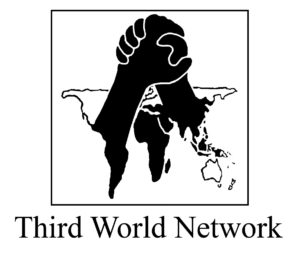
Third World Network (TWN) is an independent non-profit international research and advocacy organisation involved in issues relating to development, developing countries and North-South affairs.
TWN was registered in 1987 in Penang, Malaysia where its international secretariat is located. Its mission is to bring about a greater articulation of the needs and rights of peoples in the South, a fair distribution of world resources, and forms of development which are ecologically sustainable and fulfill human needs. TWN’s objectives are to deepen the understanding of the development dilemmas and challenges facing developing countries and to contribute to policy changes in pursuit of just, equitable and ecologically development.
To achieve these objectives TWN conducts research; publishes books and magazines; organises and participates in conferences, seminars and training workshops; and provides a platform representing broadly Southern interests and perspectives in fora such as the United Nations agencies, conferences and processes. It works with national partners to build and strengthen the global to local interactions.

UNICEF, a United Nations programme, is present in more than 150 countries and territories to help children survive and thrive, from early childhood through adolescence. The world’s largest provider of vaccines for developing countries, UNICEF supports child health and nutrition, good water and sanitation, quality basic education for all boys and girls, and the protection of children from violence, exploitation and AIDS. UNICEF is funded entirely by the voluntary contributions of individuals, businesses, foundations and governments.
Unitaid and UNICEF collaborated on a 2007-2011 project to stop the transmission of HIV from mothers to children. The two organizations have also been working together against malaria. Their projects have included securing a stable supply of long-lasting insecticide-treated bed nets (2009-2010), scaling up artemisinin-based combination therapies (2007-2012), and expansion of ACTs for Burundi and Liberia (2007).
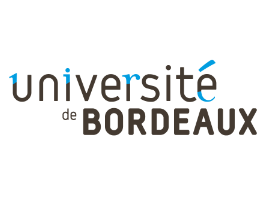
Ranked among the top universities in France, the University of Bordeaux is renowned for the quality of its academic courses and research. The University of Bordeaux was newly established on the 1st of January 2014, following the merger of three universities: Université Bordeaux 1 Sciences et Technologies, Université Bordeaux Segalen and Université Montesquieu Bordeaux IV.
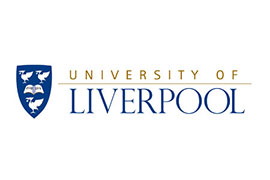
The University of Liverpool has been at the forefront of research in health and the life sciences for 130 years.
In 2011, the university received £175 million in grants that funded the work of over 1850 research staff within the faculty’s departments, schools and institutes. The university’s Institute of Translational Medicine focuses on the themes of drug safety, women’s and children’s health, cancer, epilepsy and personalized medicine.
Unitaid’s project with University of Liverpool (2016-2021) aims to reduce rates of mother-to-child transmission of HIV among women starting antiretroviral treatment in the third trimester of pregnancy. The yearly 150,000 new infections among children would decrease significantly with an effective treatment.

The Kirby Institute is a leading global research institute dedicated to preventing and treating infectious diseases. It was founded in 1986 in response to the AIDS epidemic and now contributes to knowledge on a broad range of diseases, including viral hepatitis and sexually transmissible infections. Among the Kirby Institute’s 13 research programmes are the Aboriginal and Torres Strait Islander Health Program, which is working to close the gap in health disparity between Aboriginal and Torres Strait Islander and non-indigenous people, and the Justice Health Research Program for adult and juvenile prisoners, groups with some of the worst health outcomes in society.
Unitaid’s 2017-2019 project with the Kirby Institute deals with helping people who don’t respond to HIV treatment and need another approach. The project seeks to scale up these second-line combination antiretroviral therapies. Drugs under study include dolutegravir and darunavir. Over the long-term, the grant could offer a pathway for a one-pill daily regimen with fewer side effects.
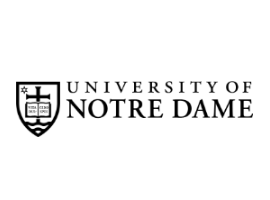
Founded in 1842, the University of Notre Dame is the nation’s leading Catholic research university, providing a distinctive voice in higher education that is at once rigorously intellectual, unapologetically moral in orientation, and firmly embracing of a service ethos. Rated among the top 20 of all U.S. institutions of higher learning, Notre Dame ranks second nationally in the percentage of students who study abroad and has seen research funding increase from $87 million to $141.5 million in the past decade. The University is organized into four undergraduate colleges — Arts and Letters, Science, Engineering, and the Mendoza College of Business — the School of Architecture, the Keough School of Global Affairs, the Law School and the Graduate School.
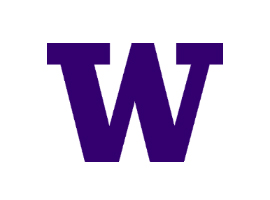
The University of Washington (UW) is one of the world’s preeminent public universities, receiving more than $1.35B in sponsored grants and contracts in 2018. Since 1972, UW has received more federal research funding than any other U.S. public university. UW faculty honors include 7 Nobel Prize awardees, 183 Association for the Advancement of Science Fellows, and many memberships of national academies. The university achieves a profound global impact by training young people to confront the grand challenges of our time through undaunted research, scholarship, and public-private partnerships. UW’s Targeted, Long-acting and Combination Anti-Retroviral Therapy (TLC-ART) Program focuses on end-to-end innovations that include pharmaceutical technologies, regulatory pathways, human clinical and patient acceptability studies, and public-private engagement. Unitaid’s GLAD (Global Long-Acting Drug) partnership with the TLC-ART Program (2020-2023) aims to transform oral HIV drugs into a long-acting injectable treatment for worldwide access. Such a treatment could benefit the 37 million people currently living with HIV.

Based at the University of Witwatersrand in Johannesburg, South Africa, Wits RHI is a research institute focusing on sexual and reproductive health, HIV and vaccine-preventable diseases. Professor Helen Rees established the organization in 1994 to support the new South African government as it worked to formulate and implement national policies around sexual and reproductive health. Today Wits RHI is one of the leading multi-disciplinary institutes in Africa. Its extensive portfolio includes research, programmatic support, training, policy development, health-system strengthening and technical assistance at national and international levels.
Unitaid and Wits RHI are collaborating on a project (2016-2020) to improve antiretroviral treatment for HIV-positive people in low- and middle-income countries. The trial will evaluate a new first-line drug regimen that, if successful, will be cheaper, more tolerable for patients, and require a smaller dose than current treatments.

The Geneva-based WHO is a specialized agency of the United Nations concerned with international public health. It was established on 7 April 1948, and played a leading role in the 1980 eradication of smallpox. Its current priorities include communicable diseases, in particular HIV/AIDS, Ebola, malaria and tuberculosis; the mitigation of non-communicable diseases; sexual and reproductive health, development, and ageing; nutrition, food security and healthy eating; occupational health; substance abuse; and driving the development of reporting, publications and networking.
Founded in 2006, Unitaid is a hosted partnership of the World Health Organization.